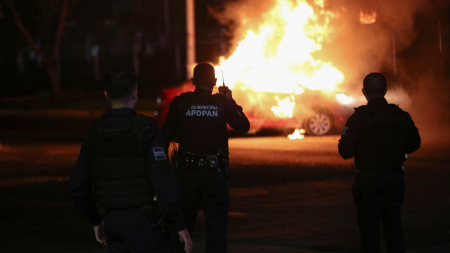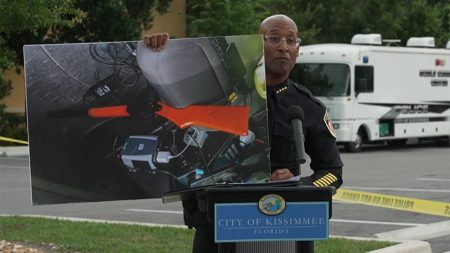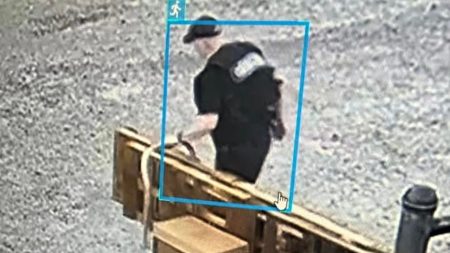The apprehension of a suspected member of the notorious Tren de Aragua gang in Palm Beach, Florida, has raised concerns about the group’s expanding reach within the United States. The arrest, announced by U.S. Border Patrol Chief Patrol Agent Jeffrey Dinise, highlights the potential threat posed by this violent criminal organization, known for its involvement in a wide range of illicit activities. The individual, a Venezuelan national with a prior record of assault with a deadly weapon, was apprehended in close proximity to former President Trump’s Mar-a-Lago residence, underscoring the gang’s potential to operate in affluent and seemingly secure communities.
The Tren de Aragua gang, whose name translates to “Train of Aragua,” originated in the Tocoron prison in Venezuela’s Aragua state between 2013 and 2015. Initially operating within Venezuela, the gang has rapidly expanded its operations, capitalizing on vulnerabilities along the U.S. southern border. A recent Department of Homeland Security memo reveals the alarming extent of the gang’s presence, now confirmed in 16 states, including Florida, Texas, New York, California, and several others spanning across the country. This expansion indicates a concerning trend, suggesting the gang is actively establishing a network across a vast geographical area encompassing a significant portion of the U.S. population.
The Tren de Aragua gang’s criminal activities are diverse and pervasive. They are implicated in a range of violent crimes, including murder, assaults on law enforcement officers, robberies, and the smuggling of firearms. Their operations extend beyond traditional criminal enterprises to include drug trafficking and the exploitation of vulnerable migrants through sex trafficking, particularly in New York City. Reports indicate the gang has even resorted to taking control of apartment buildings in some areas, demonstrating a brazen disregard for law and order and a willingness to employ intimidation and violence to achieve their objectives.
The gang’s expansion into new territories, including Washington D.C., Virginia, Montana, and Wyoming, raises serious concerns about their evolving tactics and ambitions. The Homeland Security memo, titled “Expansion of Tren de Aragua (TdA) Across the United States Presents Challenges for Law Enforcement,” underscores the escalating threat posed by this group. The memo highlights the gang’s increasing “violent tendencies” as it expands its operations, suggesting a potential for further escalation in criminal activity as it seeks to solidify its presence in new areas. This expansion presents a significant challenge to law enforcement agencies tasked with containing the gang’s influence and protecting communities from their predatory actions.
The arrest in Palm Beach serves as a stark reminder of the potential for transnational criminal organizations to infiltrate communities across the U.S. The Tren de Aragua gang’s ability to establish a presence in diverse locations, from major urban centers to more rural areas, highlights the need for enhanced border security measures and increased collaboration between law enforcement agencies at all levels. The gang’s exploitation of vulnerabilities along the southern border underscores the importance of addressing the root causes of migration and strengthening efforts to combat human trafficking and other forms of criminal exploitation.
The expanding reach of the Tren de Aragua gang within the United States presents a significant security challenge. Their involvement in a wide range of violent crimes, coupled with their exploitation of vulnerable populations, necessitates a comprehensive and coordinated response from law enforcement and government agencies. Addressing the root causes of migration, enhancing border security, and fostering international cooperation are crucial steps in mitigating the threat posed by this transnational criminal organization and safeguarding communities across the country. The arrest in Palm Beach serves as a wake-up call, highlighting the urgent need to address this growing threat and prevent further expansion of the Tren de Aragua gang’s criminal network within the United States.










